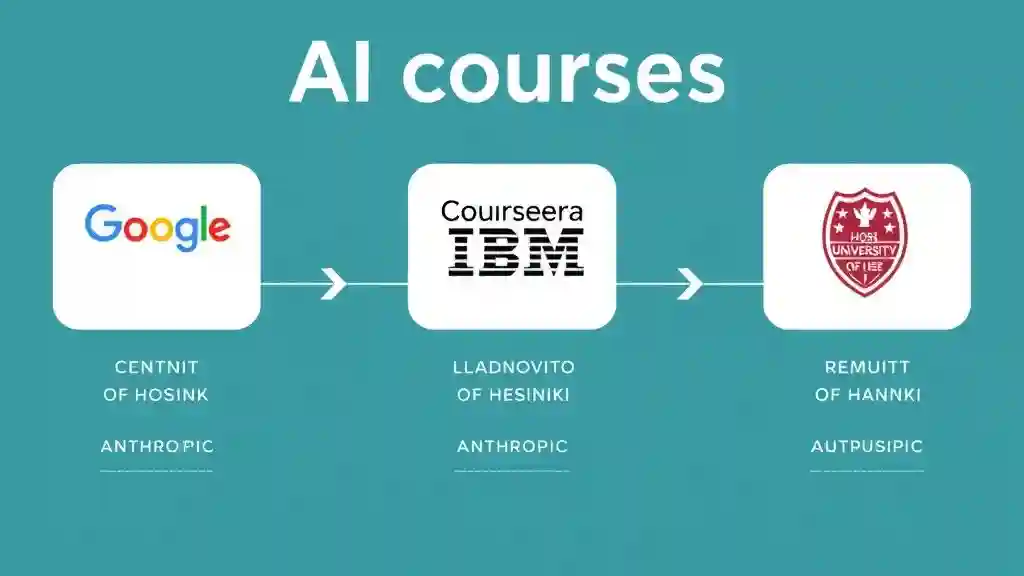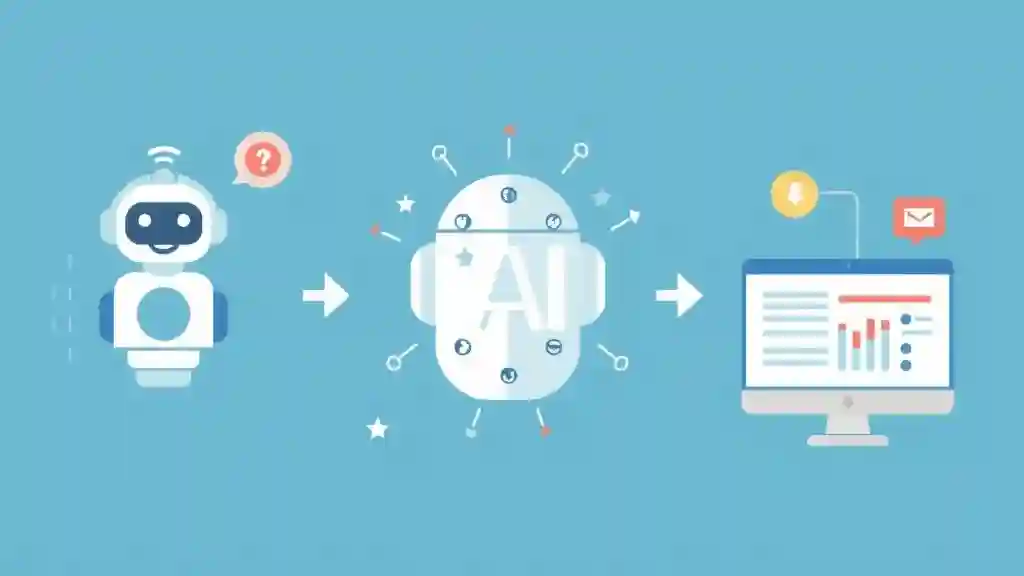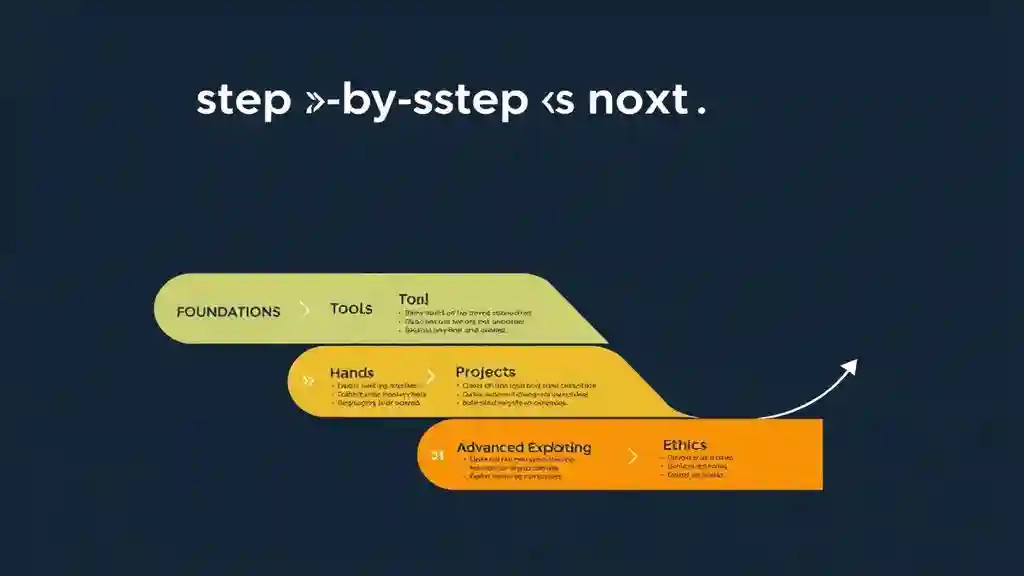
AI for Beginners: Top Free Courses, Tips, and Tools to Start Learning
If you’re just stepping into the world of technology, AI for beginners can feel intimidating. I remember the first time I opened an AI course—it seemed like a completely different language. Terms like “neural networks” and “machine learning” felt overwhelming. But the truth is, AI for beginners is accessible to anyone, even without prior coding experience. Free online courses, practical projects, and step-by-step guidance make it possible to start learning AI today, gain confidence, and see real results.
Why AI for Beginners Matters
AI is no longer just a tech buzzword. It’s transforming industries, shaping careers, and influencing daily life. For beginners, learning AI provides:
- Career opportunities: Entry points into tech, business analytics, and data-driven roles.
- Problem-solving skills: Understanding AI logic improves critical thinking.
- Everyday applications: Automate tasks, analyze personal data, and explore AI tools without coding.
When I first automated a simple repetitive task at work using AI, I felt a mix of excitement and confidence—it showed me that AI for beginners doesn’t require expert-level knowledge. Small steps and hands-on projects make learning practical and rewarding.
Top Free AI Courses for Beginners

Here’s a curated list of free courses for beginners, including duration, focus areas, and certificate availability:
Elements of AI – Free with Certificate
- Platform: University of Helsinki
- Duration: ~30 hrs
- Covers core AI ideas and their impact on society—perfect for non-technical learners
- Who Should Take This: Curious learners wanting a friendly introduction
- Success Metric: Explain basic AI concepts and societal implications confidently
AI for Everyone – Free to Audit, Paid Certificate Optional
- Platform: Coursera / Andrew Ng
- Duration: 8–10 hrs
- Focus Areas: Business applications, ethics, AI workflows
- Who Should Take This: Professionals or beginners exploring AI in business
- Success Metric: Apply AI principles to workplace scenarios
Google AI Essentials – Completely Free
- Platform: Google
- Duration: ~10 hrs
- Focus Areas: Practical AI tools for daily tasks
- Who Should Take This: Anyone wanting to use AI in real-life situations
- Success Metric: Successfully integrate AI tools into personal or professional tasks
Introduction to AI – Free to Audit, Paid Certificate Optional
- Platform: IBM / Coursera
- Duration: 20–30 hrs
- Focus Areas: Machine learning, neural networks, projects
- Who Should Take This: Structured learners preferring hands-on projects
- Success Metric: Complete a mini machine learning project
AI Fluency – Completely Free
- Platform: Anthropic
- Duration: 4 hrs
- Focus Areas: Ethics, decision-making, responsible AI
- Who Should Take This: Beginners who want to understand ethical AI usage
- Success Metric: Make informed, ethical AI decisions in simple scenarios
Bonus Courses (Global & India-Specific Options)
Global Free Courses:
- edX: Artificial Intelligence for Beginners – Fundamentals, optional certificate.
- FutureLearn: AI in Everyday Life – Focus on real-world AI applications.
- Microsoft Learn: AI Fundamentals – Hands-on modules with skill badges.
India-Specific Options:
- SWAYAM AI/ML Courses (IIT Madras) – Case studies with Hindi/English support.
- Great Learning Free AI Courses – Free certificates, project-focused learning.
Pro Tip: Start with fully free courses (Elements of AI, Google AI Essentials, AI Fluency) to build confidence before opting for optional paid certificates.
Tips to Kickstart Your AI Learning Journey
- Start simple: Begin with no-code or conceptual courses to understand AI fundamentals.
- Set learning goals: Examples: “Understand machine learning basics” or “Use AI tools in daily life.”
- Practice hands-on: Apply learning through mini-projects or exercises.
- Document progress: Keep a portfolio of certificates and projects to track growth.
- Network & collaborate: Join online AI communities for support and feedback.
- Use AI responsibly: Be mindful of ethical concerns, bias, and data privacy from the start.
Practical AI Projects for Beginners

Working on small projects helps reinforce what you learn. Here are easy-to-start AI projects:
1. Build a Chatbot (No Coding Required)
- Tools: Dialogflow, Microsoft Power Virtual Agents
- Difficulty: ⭐⭐ Beginner
- What You Learn: Natural language processing, logic, decision trees
- Success Metric: Your chatbot can answer basic questions accurately
- Why It Helps: You’ll see AI in action and understand how it processes information
2. AI-Powered Image Recognition
- Tools: Google Teachable Machine, IBM Watson Visual Recognition
- Difficulty: ⭐⭐⭐ Beginner–Intermediate
- What You Learn: Neural networks, image classification, supervised learning
- Success Metric: Your model correctly identifies objects at least 80% of the time
- Why It Helps: Understanding AI “vision” makes machine learning concepts easier
3. Predictive Analysis Using Google Sheets or Excel
- Tools: Google AutoML Tables, Excel ML Add-ons
- Difficulty: ⭐⭐ Beginner
- What You Learn: Pattern recognition, predictive analytics, data analysis
- Success Metric: Your model predicts outcomes accurately on small datasets
- Why It Helps: You can apply AI to everyday problems and business data
4. Personalized Recommendations
- Tools: Recombee, Microsoft AI Lab tutorials
- Difficulty: ⭐⭐⭐ Beginner–Intermediate
- What You Learn: Recommendation systems, AI logic, personalization
- Success Metric: The system suggests relevant content accurately
- Why It Helps: Practical AI skills for apps, websites, or personal projects
Step-by-Step AI Roadmap for Beginners

Follow this roadmap to learn AI for beginners efficiently:
| Stage | Duration | Focus | Suggested Courses |
| Foundations | 1–2 weeks | Understand AI concepts, ethics | Elements of AI, AI for Everyone |
| Tools & Applications | 3–4 weeks | Learn practical AI tools | Google AI Essentials, Uxcel AI Foundations |
| Hands-On Projects | 5–6 weeks | Practice with mini projects | IBM AI Fundamentals, Microsoft Learn |
| Ethics & Responsible AI | 7–8 weeks | Learn AI responsibility | AI Fluency (Anthropic) |
| Advanced Exploration | 9+ weeks | Optional coding, complex projects | IBM AI Fundamentals, SWAYAM AI/ML |
Tip: Don’t rush. Small, consistent practice is better than trying to finish courses too quickly.
Trending AI Tools for Beginners
- No-Code AI Tools: Google Teachable Machine, Dialogflow
- ML & Data Analysis: Google AutoML, IBM Watson, Excel ML Add-ons
- Ethics & Decision-Making: Anthropic AI Fluency
- Recommendation Systems: Recombee, Microsoft AI Lab
These tools are beginner-friendly and allow you to practice real-world AI applications without advanced coding knowledge.

FAQs About AI for Beginners
1. Can I learn AI with no coding background?
Yes! Many beginner courses and tools are no-code, like Elements of AI, Google AI Essentials, and Anthropic AI Fluency.
2. Are these AI courses completely free?
Most are free to start. Some, like Coursera and IBM, offer optional paid certificates, while others, like Google AI Essentials and AI Fluency, provide free certificates.
3. How long does it take to learn AI basics?
With consistent effort, 4–6 weeks is enough to understand fundamentals and complete small projects.
4. Do certificates matter for beginners?
Certificates are optional but helpful for a portfolio. Skills and project experience matter more at the beginner level.
5. Can AI be self-taught?
Absolutely! By combining free courses, hands-on projects, and online communities, beginners can self-learn AI effectively.
Career Tips for AI Beginners
- Build a portfolio: Share small projects or mini AI models online.
- Network: Join AI communities on LinkedIn, Reddit, or Discord.
- Apply AI daily: Use AI tools for simple tasks like organizing data or making predictions.
- Document achievements: Save certificates, project screenshots, or short demos.
- Learn ethically: Always consider data privacy, fairness, and responsible AI usage.
Personal Story: My first AI project was a small chatbot. It worked better than expected and gave me the confidence to tackle larger projects and explore AI in my career.
Key Takeaways for AI Beginners
- AI for beginners is accessible and actionable, even for non-technical learners.
- Start with free beginner-friendly courses, practice hands-on projects, and build a portfolio.
- Certificates are optional; focus on skill acquisition first.
- Ethical AI practices matter, even at the beginner level.
- Consistent effort and curiosity are more important than rushing through courses.
By following this guide, you can take your first confident steps into AI, gain practical knowledge, and prepare for more advanced learning in the future.
💡 Ready to begin? Pick one course from the list — like Google AI Essentials — and spend just 30 minutes today. Your AI journey starts now.
You WiIl Also like this
- Mastering SQL with AI in 2025
- Best AI SEO Tools 2025: SEO, Links & ROI
- AI Image Generators for Instagram Reels

Pingback: 7x More Engaging AI Text-to-Speech sEPT, 2025 - zadaaitools.com